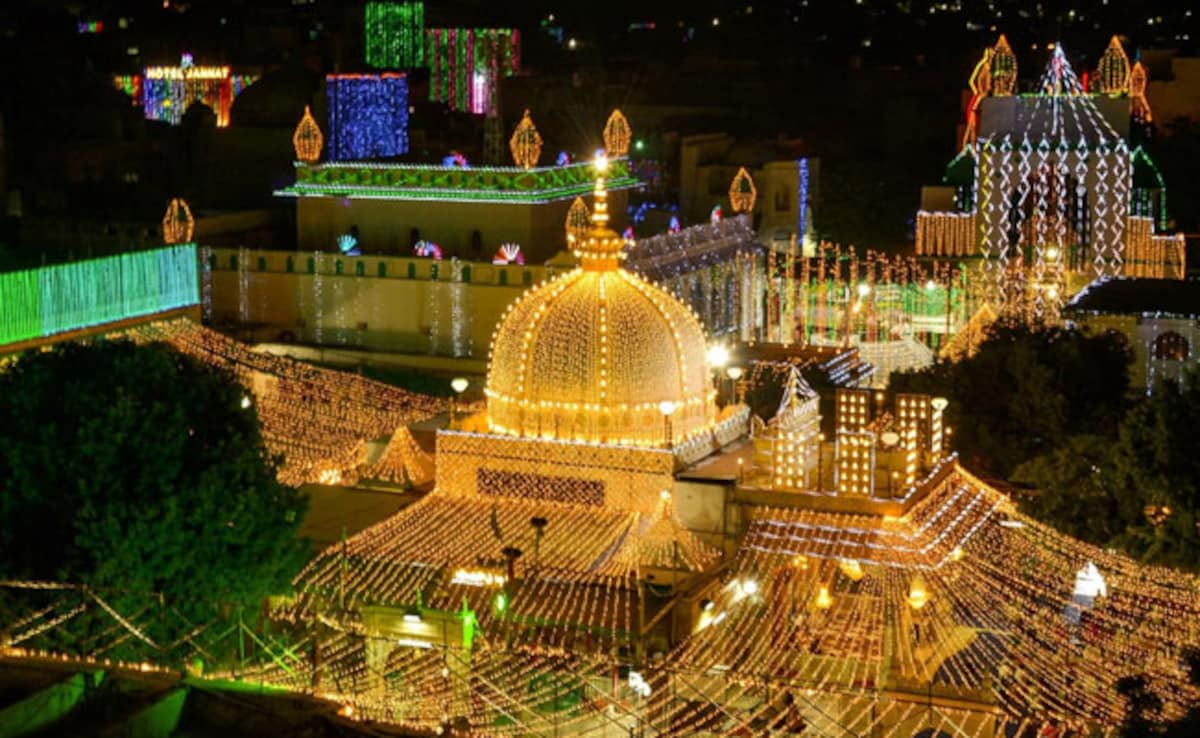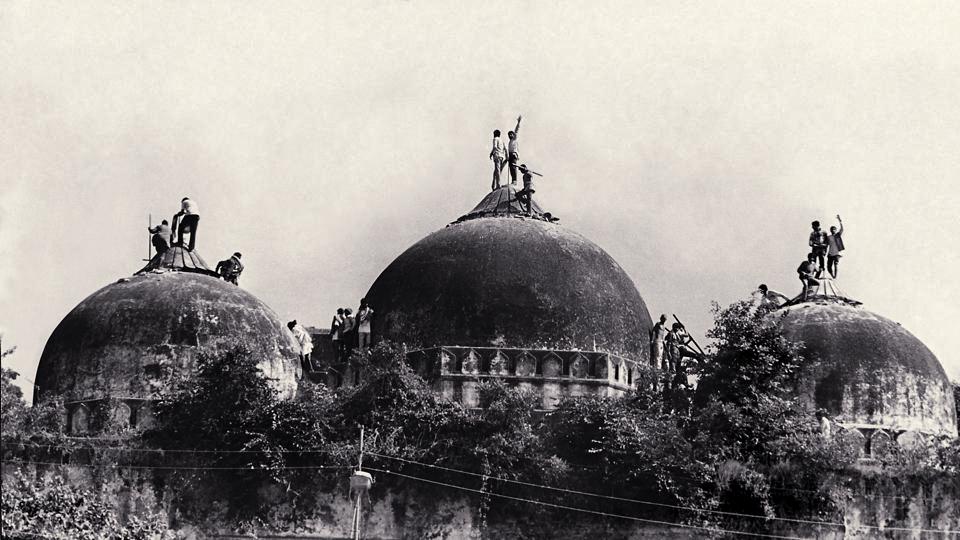Communal violence and the repression of Muslims in India have become significant topics of global concern, as the international media often highlight the destruction of historical mosques as a critical point in the Hindu nationalist narrative. To understand this phenomenon, it’s essential to analyze the socio-political motives behind such acts, the broader implications for India's secular fabric, and how these actions affect Muslims globally.
On November 27, 2024, an Ajmer court ordered the issuance of notices to three parties in a petition that claimed there is a Shiva temple inside Saint Moinuddin Chishti's dargah, according to a report by Hindustan Times.

The civil suit was filed in September. It sought directions regarding Hindu worship inside the dargah. The petitioner's lawyer, Advocate Yogesh Siroja, told reporters in Ajmer that the suit was heard in the court of civil judge Manmohan Chandel.
He said notices have been issued to the Ajmer Dargah Committee, the Ministry of Minority Affairs and the Archaeological Survey of India's (ASI) office in the national capital, reported PTI mentioned by Hindustan Times.
Another stark example, according to BBC report, was the demolition of the Babri Masjid in Ayodhya in 1992. Hindu nationalist groups, led by the Rashtriya Swayamsevak Sangh (RSS) and supported by political wings like the Bharatiya Janata Party (BJP), have claimed that the mosque was built over a temple marking Lord Ram’s birthplace. Despite the Supreme Court’s 2019 ruling favoring the construction of a Ram temple on the disputed site, many critics argue that such actions legitimize historical revisionism and embolden sectarian violence.
This narrative, propagated by Hindu nationalist groups, seeks to establish a dominant Hindu identity by marginalizing Muslim heritage and contributions. Prominent international outlets like The Guardian and Al Jazeera have reported on this systematic marginalization, pointing to instances where the government or its allies have taken steps to rename cities with Islamic origins or reduce Muslim representation in educational and administrative spaces.
Beyond India's borders, these actions resonate deeply with Muslim communities worldwide. In neighboring Bangladesh, a country with strong cultural and historical ties to India, such incidents evoke protests and reinforce mistrust between communities. Attacks on Indian mosques are often interpreted as attacks on Islamic identity itself, leading to sporadic retaliatory violence against Hindu minorities in Bangladesh, straining diplomatic relations between the two nations.

In Pakistan, India’s treatment of Muslims reinforces anti-India rhetoric among political leaders and hardline groups. Reports from Dawn indicate how the destruction of historical mosques and other anti-Muslim measures in India are used to justify calls for stronger action against perceived Indian aggression, deepening hostility in the already volatile region.
Nepal, home to a smaller but significant Muslim minority, is not immune to the ripple effects. The Kathmandu Post has reported concerns among Nepali Muslims about growing Islamophobia in India. Many worry that the growing influence of Hindu nationalism in India could inspire similar sentiments within Nepal, destabilizing communal harmony.
In China, where Muslims face repression under the guise of counterterrorism, India’s communal tensions are used as a propaganda tool. Chinese state media often highlights these incidents to divert attention from their own treatment of Uighur Muslims, presenting India as a hypocritical democracy. Such narratives fuel mistrust in South Asia, further complicating regional dynamics.
Moreover, for the global Muslim diaspora, including in the Middle East and Western countries, these incidents are deeply unsettling. Many perceive them as part of a broader trend of rising Islamophobia globally, pushing for greater advocacy and international attention on the plight of Indian Muslims. Organizations like the Organization of Islamic Cooperation (OIC) have issued statements condemning such acts, urging the Indian government to protect its Muslim population and preserve their cultural heritage.
The symbolism of targeting mosques goes beyond religious discord—it serves as a tool to reshape public memory and erode the pluralistic foundations of Indian history. By portraying mosques as symbols of historical invasions or subjugation, the narrative reinforces an “us versus them” mentality. This perspective not only distorts history but also undermines India’s legacy as a diverse and inclusive society.
However, such actions come with grave consequences. Domestically, they polarize communities, erode social cohesion, and create an environment of fear for minorities. Internationally, they tarnish India’s reputation as a secular democracy. Organizations like the United States Commission on International Religious Freedom (USCIRF) have repeatedly flagged India for its deteriorating religious freedom, placing it among countries of concern.
Furthermore, the ripple effects of such actions fuel tensions in neighboring countries and global Muslim-majority regions, potentially igniting diplomatic rows, radicalizing vulnerable groups, and jeopardizing regional stability. This trend risks creating a cycle of retaliation, further destabilizing South Asia and beyond.
In 2022, the Guardian in its report titled ‘Thousands of mosques targeted as Hindu nationalists try to rewrite India’s history’ said since 2014, when the Bharatiya Janata Party (BJP) government came to power, India’s 200 million minority Muslims say they have been subjected to persecution, violence and state-sponsored discrimination. Under the Hindutva (Hindu nationalist) agenda – which aims to establish India as a Hindu nation, rather than a secular state – Muslim civilians, activists and journalists have been routinely targeted, Muslim businesses boycotted and Islamophobic rhetoric used by BJP leaders, while lynching of Muslims has been on the rise.
The report says a senior BJP leader claimed that Mughals had destroyed 36,000 Hindu temples and they would “reclaim all those temples one by one”.
After that, Richard Eaton, a professor of Indian history at the University of Arizona, told the Guardian that there was no historical evidence for this, with Mughals thought to have torn down only about two dozen temples. “Claims of many thousands of such instances are outlandish, irresponsible and without foundation,” he said.
Audrey Truschke, a history professor at Rutgers University in the US, has faced death threats, allegedly from Hindu rightwing groups, for her work on Mughals, reports the Guardian.
In the end, the narrative regarding communal violence and the targeting of historical mosques in India reflects a broader attempt to redefine national identity along religious lines. While Hindu nationalist groups frame their actions as rectifying historical wrongs, these efforts undermine India's pluralism and constitutional values. Beyond India’s borders, these actions resonate deeply with Muslim communities in Nepal, China, Bangladesh, Pakistan, and beyond, exacerbating mistrust and fueling tensions.
Addressing these challenges requires not only political will but also a concerted effort by civil society, judiciary, and international bodies to uphold justice and promote harmony. India’s true strength lies in its diversity—a legacy that must be protected for its future.
BDST: 1923 HRS, DEC 1, 2024
MSK/SMS











